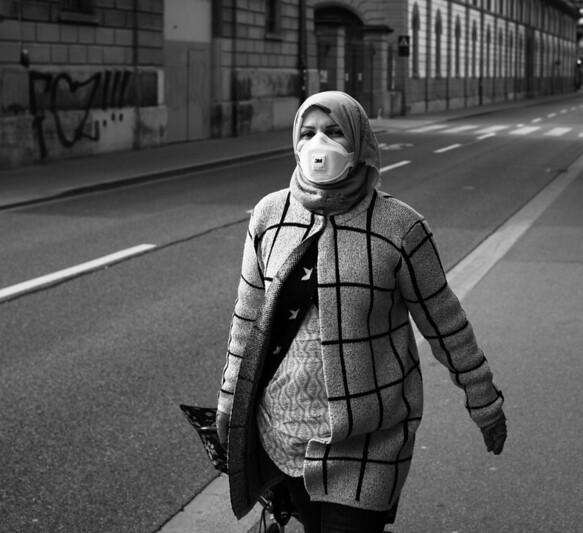As the number of global COVID-19 cases passed 4.5 million today, the World Health Assembly (WHA) geared up to meet virtually for the first time in a shortened meeting that will mainly focus on the COVID-19 threat.
Though illness totals have slowed in some earlier hot spots, virus activity is overwhelming health systems in other parts of the world, such as Brazil, where the health minister today resigned after only weeks on the job.
A call for technology sharing
The WHA, made up of health ministers from 194 countries, is the decision-making body of the World Health Organization (WHO). It typically meets at WHO headquarters in Geneva over a week, but due to COVID-19 constraints, this year's meeting will be virtual and last only 2 days, May 18 and May 19.
One of the initiatives the group will learn about is a call for a global portal for sharing COVID-19 related technology innovations. At a WHO media briefing, Costa Rica's President Carlos Alvarado Quesada, who first put forward the idea, said the goal is to put new tools for fighting the virus into service quickly at the lowest cost with no barriers to protect people. Participation would be voluntary.
The system is set to formally launch on May 29 and will be an operational framework for sharing data as part of the ACT Accelerator, an earlier announced plan to massively scale up the development of vaccines, treatments, and diagnostics.
Issues involving kids, gender bias
At today's media briefing, WHO officials said they will post a scientific brief later today on multisystem inflammatory syndrome in children, which will include a preliminary case definition and a case reporting form.
Yesterday, the WHO posted an advocacy brief on gender and COVID-19 that covers six key tasks for governments: collect disaggregated age and sex data, prevent and respond to domestic violence exacerbations, encourage access to sexual and reproductive health services, protect health workers, ensure equitable access to testing and treatment, and ensure that responses are including and nondiscriminatory.
Challenges in different hot spots
WHO officials also fielded questions about developments in different global hot spots. With reports that Russia may be undercounting or using a different method of counting COVID-19 deaths, Mike Ryan, MD, who directs the WHO's emergency program, said health systems in hot spots are under stress, but the WHO wants to learn more about how Russia is conducting surveillance, particularly how mortality is being recorded.
Regarding reports of Brazil's president downplaying the outbreak against the backdrop of soaring cases, Ryan said all countries have struggled to some degree. "Those who got it better had cohesive clear communication with an all-of-society approach," he said.
Ryan said some countries in the Gulf region are seeing increasing cases, and though some countries are well-positioned to respond, some are fragile and wracked with conflict and poor health systems, including Syria, Iraq, and Yemen.
He said a situation developing in Yemen is especially worrying, with cases now reported in the north and south of the country. The WHO and its United Nations partners are working with the country to repurpose cholera rapid response teams to tackle COVID-19 case findings and contact tracing.
Ryan said the virus is difficult to contain in conflict settings. "We need a more peaceful environment," he said.
Maria Van Kerkhove, PhD, the WHO's technical lead for COVID-19, also noted that Gulf countries have migrant worker dorms, similar to those in Singapore that were the focus of a recent outbreak, and said the WHO is in talks with the countries to discuss ways to prevent outbreaks, which pose a threat to congregate living settings.
Brazil, Russia developments
Brazil's Health Minister Nelson Teich, MD, resigned today after just weeks on the job, as the country struggles to contain a surge in COVID-19 activity, Reuters reported.
The country's President Jair Bolsonaro, who has regularly downplayed the virus threat, had criticized Teich as being too reluctant to reopen the economy and push the use of antimalaria drugs to treat infections. Without consulting the health minister, the president had also undercut response efforts by allowing gyms and salons to reopen.
According to Reuters, Teich's last straw might have been pressure from Bolsonaro for wider use of hydroxychloroquine, which the minister had resisted due to a lack of scientific evidence (see related CIDRAP News story today). The president fired the previous health minister on Apr 16 for resisting the pressure to use the drug and not urging Brazil's states to wind down their social distancing measures.
Brazil today reported 9,280 new cases and 462 more deaths and is now the country with the sixth highest case total.
Russia, the country with the second highest case number, today reported 10,598 more cases, and Moscow—the country's epicenter—launched mass antibody testing to see what part of the population has already been exposed, Reuters reported. The city's mayor said there will be 200,000 tests per day until the end of the month and that the findings will help him decide when and how to dial back lockdown measures.
Flare-ups in earlier Asian hot spots
South Korea today reported 27 new cases, 17 of them linked to nightclub clusters in Seoul, Korea Centers for Disease Control and Prevention said today in an update. So far, 153 cases have been linked to the clusters, Yonhap news reported, noting officials have now linked recent infections in the university district, some of whom visited karaoke facilities, to the nightclub cases in the Itaewon district.
Elsewhere, Singapore's health ministry today reported 793 more cases, 791 of them linked to foreign workers living in dorms. The country recently launched a plan to test all of the workers in the dorms.
In China, the National Health Commission today reported four new cases, all from Jilin province. It also reported 11 more asymptomatic cases, two of them imported. A cluster of cases in Jilin's capital city, with a population of about 4 million, recently went on partial lockdown to curb the spread of the virus.





















